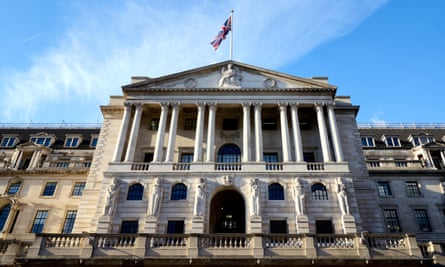This was supposed to be the year when things returned to normal. After the collapse of activity during the months of lockdown in 2020 and the supply bottlenecks of 2021, the hope was that 2022 would call time on an era of seemingly permanent crisis. It hasn’t quite turned out like that.
Indeed, 2022 is shaping up to be a pivotal year for the global economy, taking its place alongside the end of the Bretton Woods fixed exchange rate system in 1971, the reunification of Germany in 1990 and the near collapse of the banks in the financial crisis of 2008.
For one thing, the past 12 months have brought to an end the cheap money regime that lasted for nigh on a decade and a half until central banks took fright at rising inflation. For most western countries, 2022 was the year when cost of living pressures hit a 40-year high, prompting the US Federal Reserve, the European Central Bank and the Bank of England to slam on the brakes. Threadneedle Street’s monetary policy committee met eight times in 2022 and raised interest rates each time.
The return of tougher monetary policy was, though merely an adjunct to a bigger story: the dawning of a new age of self-sufficiency caused in part by the legacy of the Covid-19 pandemic, in part by the impact of Russia’s invasion of Ukraine on energy prices, and in part by the growing rift between the US and China.
When the pandemic began in early 2020, the World Health Organization – in a break with previous policies – advised the rest of the world to follow Beijing’s hardline lockdown model for tackling Covid-19, including contact testing and rigorously policed periods of isolation. The year ends with China having just abandoned its zero-tolerance approach, Covid infections soaring, suspicions growing that the origin of the virus was a Wuhan laboratory, and countries that followed the WHO advice to the letter counting the economic and social cost of lockdowns. Amid all this, President Xi Jinping has made himself China’s ruler for life. In the circumstances, it is hardly surprising that relations between the world’s two biggest economies are frosty.
That’s not to say globalisation is finished because it clearly isn’t. Western corporations have invested too much in low-cost, offshore production centres for that to be the case. China is going to remain the world’s biggest exporter. Countries will still trade with each other but they are going to be choosier about with whom, and wary about opening up strategically important sectors to competition from states perceived to be a threat.
It seems unlikely, for example, that Britain would face another pandemic as ill-prepared with protective equipment for health workers as it was in the spring of 2020. Or that Germany would leave itself at the mercy of the Kremlin for its gas supplies. Or that the US would be entirely comfortable relying on Taiwan for high-grade computer chips, given China’s aggressive stance towards the island.

Back in the 1990s, when optimism about the new post-Soviet Union world order was at its height, the assumption was that countries would never go to war with trading partners. Protectionist policies would be whittled away by rounds of liberalisation negotiations orchestrated by the World Trade Organization (WTO), capital would flow to the parts of the globe where it could be used most efficiently, and consumers would benefit from lower prices. The mood is somewhat different now. What looked like an enduring certainty – free markets are always better than closed markets – has had a reality check.
The EU and the UK have taken issue with the US over the Biden administration’s Inflation Reduction Act, which involves a massive package of subsidies designed to green the economy. Companies aiming to cut carbon emissions will be eligible for tax credits provided they invest in American production facilities.
Claims that the subsidies run counter to WTO rules are unlikely to have any impact on US policy. There has always been a latent protectionism in the US (as there has in the EU as well) and it is becoming more pronounced. Biden wants to shore up his support in blue-collar communities that see themselves as the victims of globalisation. What’s more, he could only get action on climate change through Congress if it was seen to be good for American jobs. The fact that a more aggressive industrial policy goes with the grain of US geopolitical objectives is the icing on the cake.
There is no chance of the EU successfully prosecuting a case at the WTO against the US because Washington has refused to allow the appointment of new judges to the Geneva-based body’s court of appeal, thus making it toothless. Brussels is likely to respond with industrial subsidies of its own, leaving the UK with a dilemma. Should it offer green subsidies as part of an interventionist, post-Brexit industrial strategy or should it stick by its commitment to free trade?
Opting for a broadly non-interventionist approach certainly goes against the current trend. The production bottlenecks of 2021, the heavy carbon footprint from moving goods around the world, and the struggle for strategic supremacy between the US and China all point towards shorter supply chains and onshoring.
Deglobalisation comes at a cost. Trade theory suggests go-it-alone strategies lead to higher prices as countries cease to specialise in what they are most efficient at producing. Inflation may prove to be a more enduring problem than central banks think. But full-fat globalisation came at a cost, too. It is really no real surprise that the pendulum has swung in 2022, and will continue swinging. Nor is it a bad thing.
Read More:The pendulum swung against globalisation in 2022 – and that’s no bad thing | Larry Elliott
2022-12-26 20:41:00
